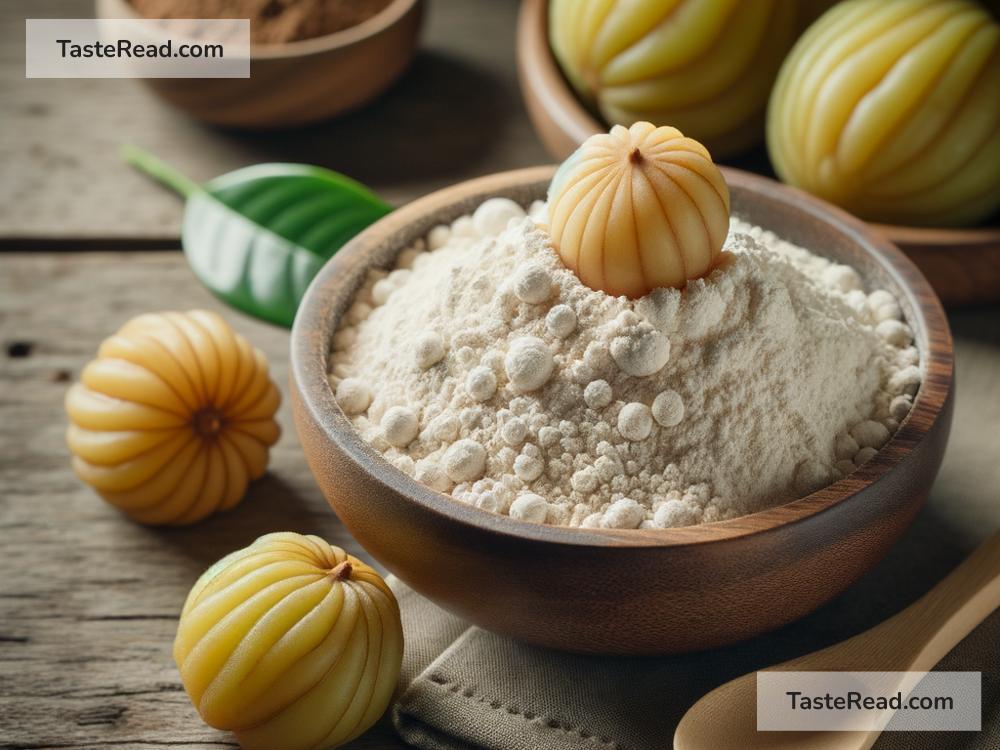Why Monk Fruit Is Replacing Sugar in Many Health-Conscious Kitchens
In the world of healthy eating and natural ingredients, there’s a sweet newcomer that’s quickly becoming the favorite among health-conscious food lovers: monk fruit. This small, round fruit, originally from Southeast Asia, is taking the place of sugar in many kitchens around the globe. But why is this happening? Let’s explore the reasons behind the growing popularity of monk fruit as a sugar alternative.
Natural Sweetness Without the Calories
One of the most appealing aspects of monk fruit is its incredible natural sweetness, which can be up to 200 times sweeter than sugar. Yet, despite its sweetness, monk fruit has virtually no calories. This makes it an excellent option for those keeping an eye on their calorie intake or trying to lose weight without sacrificing the joy of sweet-tasting food and drinks.
Safe for Diabetics
For people living with diabetes, finding safe sweeteners can be a challenge. Many artificial sweeteners come with potential health concerns, and regular sugar can cause spikes in blood glucose levels. Monk fruit shines in this scenario as it doesn’t impact blood sugar levels the same way sugar does, making it a safer choice for diabetics or anyone monitoring their blood sugar levels.
No Aftertaste
A common complaint about many sugar alternatives is the aftertaste they leave behind, which can range from bitter to metallic. Monk fruit, however, is known for having a very minimal or no aftertaste at all, making it a more palatable option for sweetening coffees, teas, and baked goods without compromising the flavor.
Rich in Antioxidants
Monk fruit isn’t just about sweetness; it also packs a nutritional punch. It contains compounds called mogrosides, which are antioxidants. Antioxidants are important because they help the body fight against free radicals, potentially harmful molecules that can damage cells. Including antioxidants in your diet is a great way to support overall health.
A Friend to the Gut
Unlike some other sweeteners that can cause digestive issues, monk fruit is generally easier on the stomach. It doesn’t ferment in the gut, which means it’s less likely to cause bloating, gas, or other uncomfortable digestive problems. This makes monk fruit an excellent choice for people with sensitive stomachs or those who are trying to maintain a healthy gut.
Environmentally Friendly
As more people become conscious of their environmental impact, the source of their food is gaining importance. Monk fruit is a sustainable sweetener, requiring less water and land to produce than sugar cane. By choosing monk fruit over traditional sugar, consumers can contribute to a more sustainable and eco-friendly food system.
A Versatile Sweetener
Another reason monk fruit is gaining traction in health-conscious kitchens is its versatility. It can be used in a wide range of recipes, from sweetening your morning coffee or tea to baking delicious desserts. Because it’s available in both liquid and powder forms, it’s easy to incorporate into any recipe as a sugar replacement.
Meeting the Demand for Healthier Options
The rise of monk fruit as a preferred sweetener is also reflective of a broader trend: the growing demand for healthier food options. As people become more informed about the effects of sugar on their health, there’s a natural move towards alternatives that offer the sweetness without the negative side effects. Monk fruit fits perfectly into this space, providing a naturally derived, health-conscious choice for those looking to reduce their sugar intake.
The Bottom Line
The surge in popularity of monk fruit as a sugar substitute is no surprise when you consider its many benefits. From its zero-calorie sweetness to its antioxidant properties, monk fruit is making waves in health-conscious kitchens for all the right reasons. Whether you’re looking to cut down on calories, manage diabetes, or just make healthier choices, monk fruit offers a tasty, versatile, and environmentally friendly option.
As with any change in your diet, it’s always a good idea to do some personal research or consult a healthcare provider to make sure it’s the right choice for you. But for those who have made the switch, the consensus is clear: monk fruit is a sweet alternative that doesn’t just promise a healthier lifestyle—it delivers.


